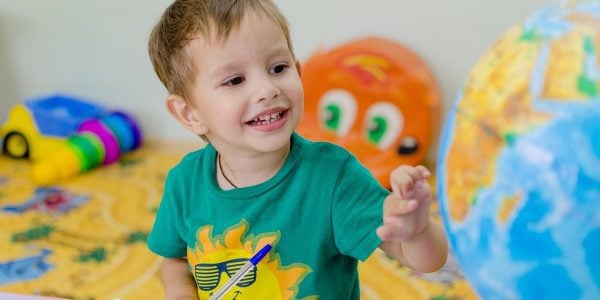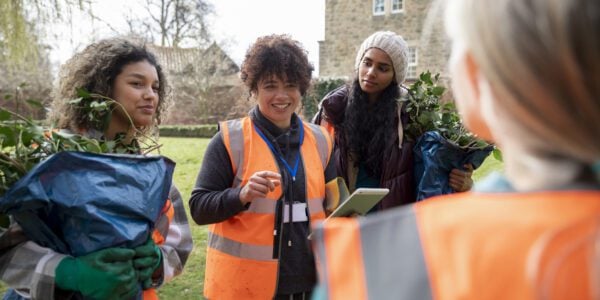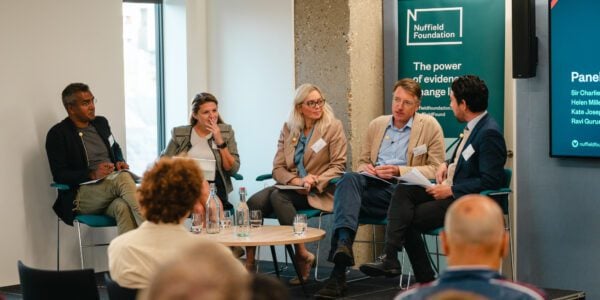
21/06/22
2 min read
New research on the impact of the COVID pandemic on early childhood education and care (ECEC) has revealed that “considerably more” children from ethnic minority and disadvantaged backgrounds have missed out on formal early learning.
Implications of COVID for Early Childhood Education and Care in England, a study funded by the Nuffield Foundation, and carried out by the Centre for Evidence and Implementation, the University of East London, Frontier Economics, Coram Family and Childcare and the Institute for Fiscal Studies, found that the number of children attending ECEC in the autumn 2021 had dropped to 90% of expected levels based on pre-pandemic patterns. The latest local authority figures continues to shows substantial variation in attendance rates.
Attendance was lower than expected in areas with large ethnic minority populations, deprived areas, and areas with high unemployment rates. Conversely, attendance rates were higher in local authorities that were less deprived, had higher rates of development amongst two- and five-year-olds and had higher rates of female economic activity and lower unemployment rates.
Uptake of places for two-year-olds plummeted
The uptake of funded entitlement places amongst disadvantaged two-year-olds plummeted 7 percentage points (from 69% to 62%). Of the disadvantaged two-year-olds who dropped out of ECEC between January 2020 and January 2021, ethnic minorities and children with special educational needs were the most likely to have done so.
Detailed qualitative interviews with parents, providers and local authority early years teams reveal the stark implications of children missing out on vital early learning. Speech and language delays were reported across all age groups; children’s physical development and motor skills were negatively impacted; and children struggled to adapt to new situations and develop self-regulation resulting in increased social, emotional and mental health needs. There was also widespread concern among early years practitioners that the development gap is widening and that the drop in participation of disadvantaged children may now become permanent.
Parents and carers reported the enormous challenge of caring for their children with little or no support from early years services. Mothers in particular felt the strain, some of whom were forced to take unpaid leave or reduce their working hours, and many saw their mental health negatively impacted.
Providers in a precarious financial position
The research also highlighted the impact of the pandemic on the financial sustainability of childcare providers, with many dipping into their reserves or taking on loans to continue to prioritise the needs of local families. The sector faces a web of complex challenges including reduced profits, uncertainty over levels of take-up as demand for flexible provision increases, and an unprecedented staff recruitment and retention crisis. The precarious financial position of providers was also found to have serious implications for children with complex needs as settings struggled to support them as some providers’ decisions were increasingly shaped by financial considerations and led to a prioritisation of children who generate more income and less likely to offer places to children with complex needs.
The COVID-19 pandemic has had a marked effect on young children’s development, in part because many children did not attend early childhood education and care settings. However, even before the pandemic, the sector was experiencing issues in terms of quality, accessibility, affordability and sustainability. We need a wholesale review of the purpose and provision of early childhood education and care, including how to improve access and outcomes for children from ethnic minority and disadvantaged backgrounds. Such a review also needs to consider the fairest and most sustainable funding model and how the people providing care can be appropriately skilled and remunerated.Eleanor Ireland, Nuffield Foundation
The pandemic has highlighted the pivotal role of early education in children’s social, emotional and cognitive development. But children from disadvantaged and ethnic minority backgrounds, who are most likely to benefit from formal early learning, are also the children most likely to miss out. The inequality gap has widened, with a likely consequence being that the attainment gap also widens. If this trend is to be reversed, there needs to be more funding from Government to ensure that disadvantaged children have equity of access to quality early years education, including new statutory responsibilities and funding for local authorities to ensure high quality and accessible childcare provision is a key component of the local offer to families with young children – across the country.Ivana LaValle, Principal Investigator












































